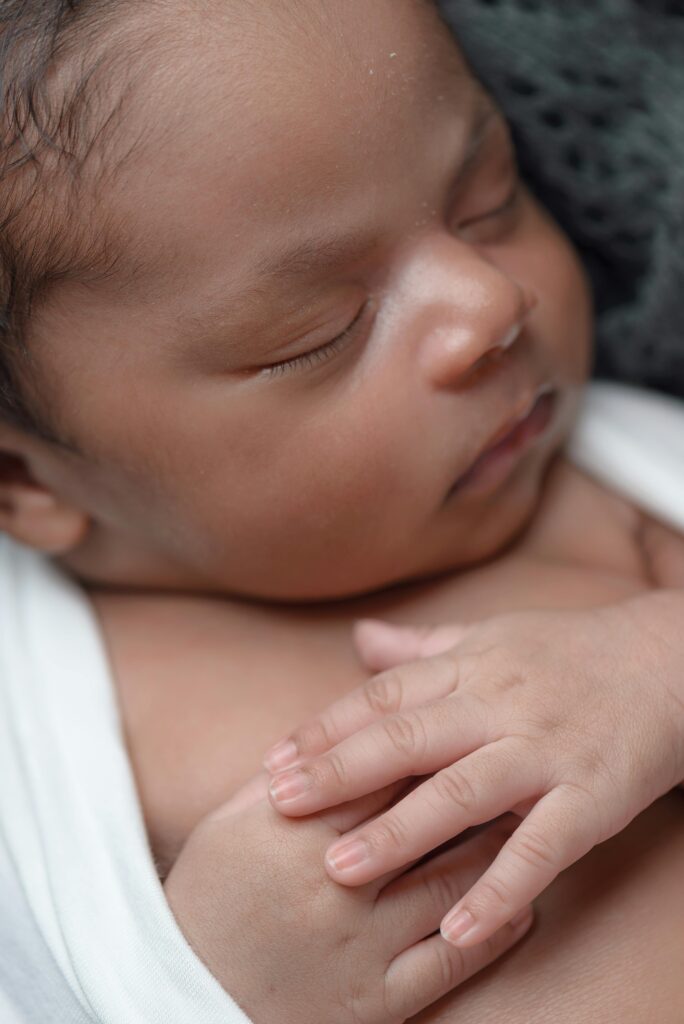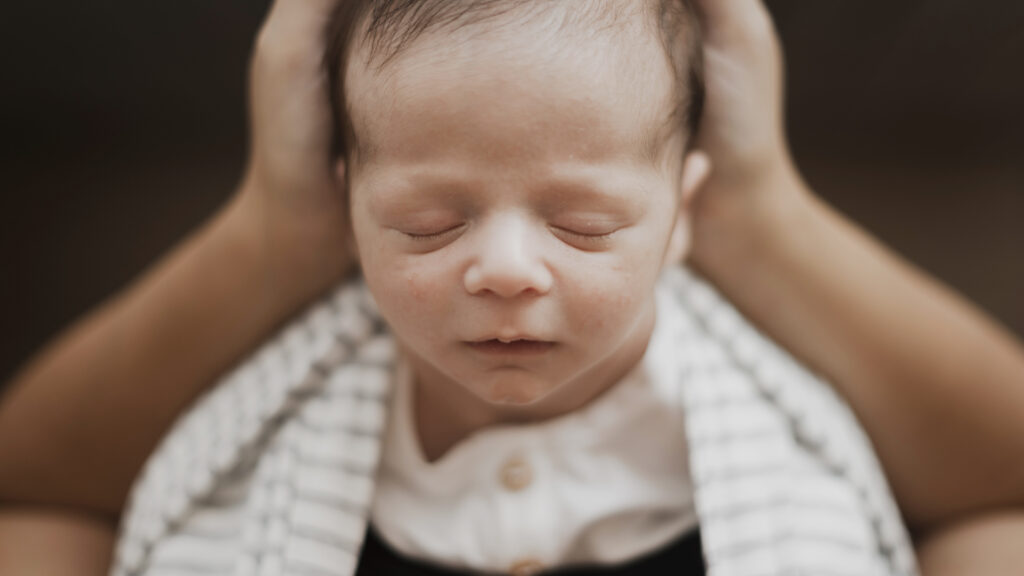Babies sleeping through the night is a milestone that many parents look forward to, but it doesn’t happen at the same time for every baby. Here’s a detailed explanation of what to expect and factors that can influence when your baby might start sleeping through the night or Factors Affecting When Babies Sleep

1. Newborn Stage (0-3 Months)
- Sleep Patterns: Newborns have irregular sleep patterns and typically sleep 14-17 hours per day, but only in short stretches of 2-4 hours at a time.
- Their small stomachs can only hold so much milk, so they wake frequently to feed, whether breastfed or formula-fed.
- Night Wakings: It’s common for newborns to wake up every 2-3 hours at night. Some may have longer stretches at night, but it’s rare for them to sleep through the night at this stage.

2. 3-4 Months Old
- Longer Sleep Stretches: By around 3 months, many babies start to develop a more predictable sleep pattern. Some may begin to sleep for longer stretches at night, maybe 5-6 hours at a time.
- Feeding Needs: While some babies might start sleeping longer, others still need to feed every 3-4 hours. This is normal and depends on the baby’s growth and development.

3. 4-6 Months Old
- More Consistent Sleep: Around 4-6 months, babies typically begin to consolidate their nighttime sleep. Many may start to sleep for a 6-8 hour stretch at night, which some pediatricians consider “sleeping through the night.”
- Sleep Training: This is a common time for parents to start sleep training if they choose to. Methods vary, and some babies may start to sleep through the night.

4. 6-9 Months Old
- Sleeping Through the Night: By this age, many babies can sleep for 8-12 hours without needing to feed. However, some babies may still wake up for a night feeding, especially if they are going through a growth spurt or teething.
- Night Wakings: Sleep regressions can occur around this time due to developmental milestones like crawling or standing, which might temporarily disrupt nighttime sleep.

5. 9-12 Months Old
- Consistent Nighttime Sleep: By 9-12 months, most babies are capable of sleeping through the night (10-12 hours) without needing to feed. However, individual variations are normal; some babies may wake up occasionally.
- Separation Anxiety: Around this age, separation anxiety can lead to more frequent night wakings, even if the baby had been sleeping through the night previously.

6. 12 Months and Beyond
- Regular Sleep Schedule: Many toddlers continue to sleep through the night, but night wakings can still occur due to illness, changes in routine, or developmental milestones.
- Toddler Sleep Challenges: As babies grow into toddlers, they may experience sleep disruptions due to nightmares, bedtime resistance, or transitioning from a crib to a bed.

Factors Affecting When Babies Sleep Through the Night:
- Feeding Habits: Formula-fed Babies may start sleeping longer stretches earlier than breastfed babies, as formula takes longer to digest. However, this varies from baby to baby.
- Sleep Environment: A consistent bedtime routine, a dark, quiet room, and a comfortable sleep environment can encourage better sleep.
- Parental Response: How parents respond to night wakings (e.g., feeding, soothing, letting the baby self-soothe) can influence sleep patterns.
- Health and Development: Health issues like reflux, allergies, or developmental milestones like teething can affect sleep.

Determination
It’s important to remember that every baby is different. While some babies may start sleeping through the night by 4-6 months, others might take longer. It’s normal for babies to wake up during the night even after they’ve started to sleep through. Patience, consistency, and understanding your baby’s individual needs are key in helping them develop healthy sleep habits.

Meaning Of Nightfall In Females

Can Girls Cum In Their Sleep



1 thought on “Factors Affecting When Babies Sleep | When Do Babies Sleep Through The Night”